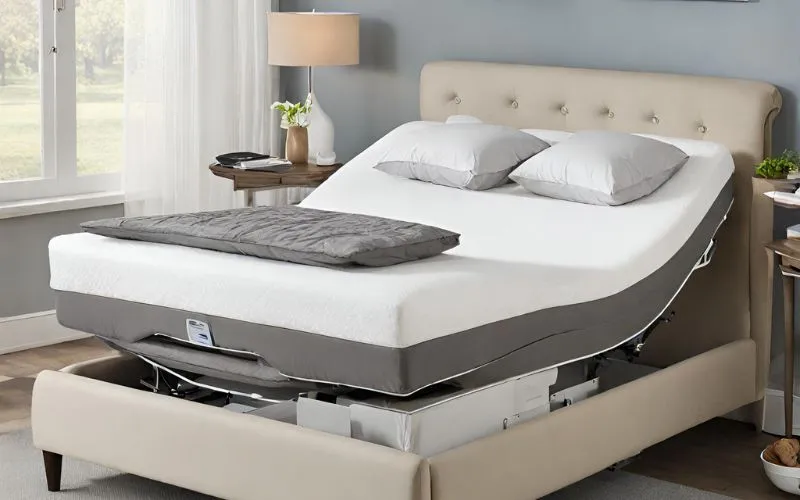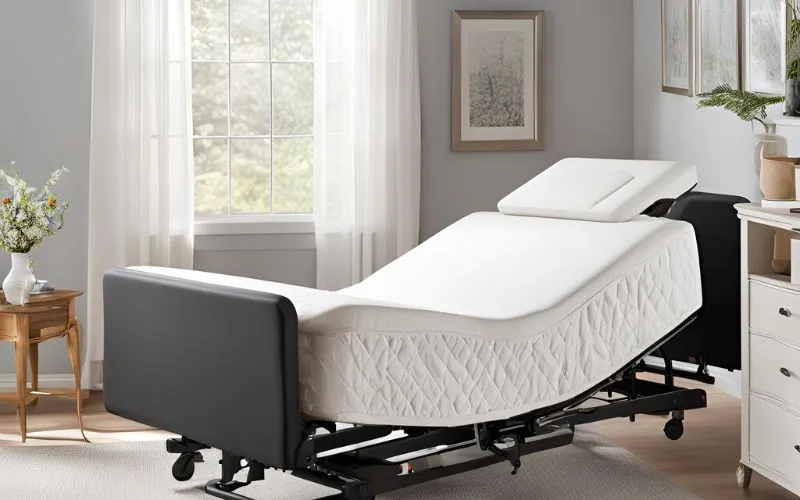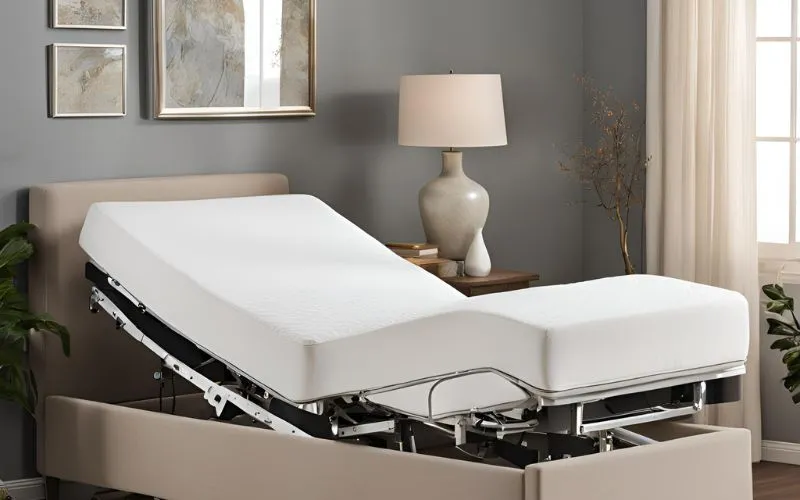The Top Benefits of Adjustable Beds for Digestive Issues

Introduction
Adjustable beds have gained popularity in recent years due to their potential benefits for alleviating digestive discomfort. In this article, we will explore the impact of sleep position on digestive health and how adjustable beds can offer relief for individuals dealing with digestive issues. Understanding the benefits of adjustable beds for digestive health is essential in promoting better sleep and overall well-being. So, let’s delve into the relationship between digestive issues and sleep, and how adjustable beds can play a supportive role in managing these concerns.
Understanding Digestive Issues and Sleep
How Digestive Issues Affect Sleep
Digestive issues, such as acid reflux, heartburn, and discomfort from gastrointestinal conditions, can significantly impact an individual’s quality of sleep. The discomfort and pain associated with digestive issues often make it challenging to find a comfortable sleep position. This can lead to disrupted sleep patterns and inadequate rest, further exacerbating the symptoms of digestive discomfort.
Furthermore, the relationship between digestive issues and sleep disturbances is bidirectional. Not only do digestive issues cause poor sleep, but the converse is also true – insufficient or poor-quality sleep can worsen digestive symptoms. This cyclical relationship highlights the importance of addressing both digestive health and sleep quality in tandem.
- Discomfort and Pain: The discomfort and pain associated with digestive issues, like acid reflux and heartburn, can make it difficult to find a comfortable sleep position, leading to frequent tossing and turning during the night.
- Disrupted Sleep Patterns: Digestive discomfort may lead to frequent awakenings during the night, disrupting the natural sleep cycle and preventing deep, restorative sleep.
- Increased Stress and Anxiety: Digestive issues can cause heightened stress and anxiety, which may, in turn, affect sleep quality and lead to difficulty falling asleep or staying asleep.
On top of these disruptions, digestive issues can also lead to sleep-related breathing problems, such as sleep apnea. It’s essential to address digestive health to improve the overall quality of sleep and its impact on overall well-being.
The Importance of Quality Sleep for Digestive Health
Quality sleep is paramount for digestive health and overall well-being. During deep sleep, the body undergoes essential repair and renewal processes, including the repair of tissues in the digestive system. Adequate sleep also supports healthy metabolism, hormone regulation, and immune function, all of which contribute to improved digestive health. Therefore, addressing sleep quality is crucial in managing digestive issues and promoting digestive comfort.
Benefits of Adjustable Beds for Digestive Health
Improving Sleep Position for Digestive Relief
When it comes to digestive relief, finding the right sleep position can make a significant difference in alleviating discomfort. Adjustable beds offer a versatile solution for tailoring sleep positions to individual needs, providing a host of benefits for digestive health.
- Reducing Acid Reflux and Heartburn: Elevating the upper body by using an adjustable bed can mitigate the symptoms of acid reflux and heartburn. This elevation helps prevent stomach acid from flowing back into the esophagus, providing relief from nighttime discomfort.
- Easing Discomfort from Digestive Disorders: For individuals with conditions such as GERD or IBS, adjustable beds can alleviate pressure on the digestive system, reducing discomfort during sleep and promoting better overall well-being.
It’s essential to find the optimal angle to support digestive health. This can vary for individuals depending on their specific symptoms and comfort preferences. By adjusting the bed to different angles, individuals can determine the most comfortable and beneficial position for their unique needs.
Reducing Acid Reflux and Heartburn
Adjustable beds offer an effective solution for reducing the occurrence and discomfort of acid reflux and heartburn. By elevating the upper body, these beds create an inclined sleeping position that helps prevent stomach acid from flowing back into the esophagus. This not only reduces the frequency of reflux episodes but also alleviates the severity of symptoms, providing much-needed relief for individuals dealing with digestive issues.
- Supporting Scientific Evidence: Numerous studies have demonstrated the positive impact of sleeping in an inclined position on reducing acid reflux and heartburn. Research has shown that elevating the upper body can significantly decrease the occurrence of reflux events and improve symptoms.
- Enhanced Comfort: Adjustable beds not only address the physiological aspects of acid reflux but also contribute to overall comfort during sleep. By customizing the angle of inclination, individuals can find the most comfortable position to minimize discomfort and maximize restfulness.
- Improved Quality of Life: Through the reduction of acid reflux and heartburn, adjustable beds offer an opportunity for individuals to enjoy improved quality of life. By promoting better sleep and alleviating digestive discomfort, these beds can enhance overall well-being and daily functioning.
Easing Discomfort from Digestive Disorders
For individuals with digestive disorders such as irritable bowel syndrome (IBS) or inflammatory bowel disease (IBD), adjustable beds can provide much-needed relief. The ability to raise the legs or adjust the sleeping position can help alleviate pressure on the abdomen, reducing discomfort and promoting better sleep for individuals managing these digestive conditions.
Choosing the Right Adjustable Bed for Digestive Health
Key Features to Look for in Adjustable Beds
When selecting an adjustable bed for digestive health, several key features should be considered. These include customizable incline options, lumbar support, and user-friendly remote controls. The bed frame’s stability and weight capacity should also be evaluated to ensure optimal support and durability, especially for individuals with specific digestive health needs.
Considerations for Different Digestive Conditions
It’s important to consider individual digestive conditions when choosing an adjustable bed. For instance, individuals with acid reflux may benefit from a bed with a higher incline, while those with IBS or IBD may prioritize features that alleviate abdominal pressure. Understanding how different features cater to specific digestive needs is essential in selecting the right adjustable bed for overall comfort and relief.
Tips for Using Adjustable Beds to Manage Digestive Issues
Best Sleeping Positions for Digestive Comfort
Optimizing the sleeping position on an adjustable bed can greatly contribute to digestive comfort. For individuals with acid reflux, a raised upper body position can help prevent the backflow of stomach acid. Similarly, raising the legs slightly can alleviate pressure on the lower abdomen, providing relief for individuals with digestive disorders. It’s important to experiment with different positions to find the most comfortable and supportive configuration for individual digestive needs.
- Back Sleeping Position
- Side Sleeping Position
- Elevated Upper Body Sleeping Position
- Legs Raised Sleeping Position
Lifestyle and Dietary Tips for Improved Digestive Health
Improving digestive health involves making mindful lifestyle and dietary choices. By incorporating the following tips, you can promote better digestive comfort and overall well-being.
- Avoid Large Meals Close to Bedtime: Consuming large meals close to bedtime can put a strain on your digestive system, leading to discomfort during sleep. It’s advisable to have lighter meals and snacks in the evening to support better digestion.
- Stay Hydrated: Proper hydration is essential for digestive health. Drinking an adequate amount of water throughout the day can help maintain healthy digestion and prevent issues such as constipation.
- Practice Stress-Reducing Techniques: Chronic stress can negatively impact digestive function. Engaging in activities such as meditation, deep breathing exercises, or yoga can help reduce stress levels and promote better digestion.
- Maintain a Balanced Diet: Consuming a diet that is rich in fiber, vitamins, and minerals is beneficial for digestive health. Including fruits, vegetables, whole grains, and lean proteins in your meals can provide essential nutrients to support optimal digestion.
By implementing these lifestyle and dietary adjustments, you can enhance your digestive well-being, complementing the benefits of using an adjustable bed to promote a restful and comfortable sleep.
Conclusion
Adjustable beds offer a valuable solution for individuals seeking relief from digestive discomfort and improved sleep quality. By understanding the impact of sleep position on digestive health and the benefits of adjustable beds, individuals can make informed choices to enhance their well-being. Choosing the right adjustable bed with consideration for individual digestive conditions and utilizing effective sleeping positions can significantly contribute to managing digestive issues. With holistic lifestyle adjustments and the support of adjustable beds, individuals can prioritize digestive health and promote restful, comfortable sleep.




